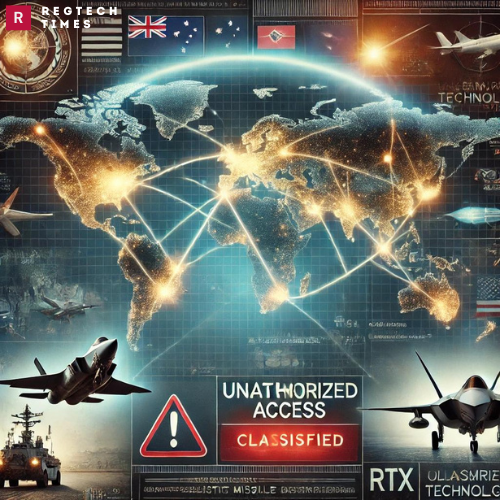A major scandal has emerged involving the American defense contractor RTX, formerly known as Raytheon Technologies, after the company was fined $200 million (USD) by the U.S. government. The penalty comes in response to 750 violations of the Arms Export Control Act and International Traffic in Arms Regulations (ITAR), which included unauthorized transfers of sensitive military technology to several countries, including Australia. The fallout from these violations extends beyond the legal ramifications, raising questions about international defense partnerships and security protocols.
Unapproved Exports and Security Breaches: RTX’s Widespread Problem
The violations by RTX are numerous and severe, with several incidents involving unauthorized exports of classified defense articles to Australia and other allied nations. These breaches took place between 2017 and 2022 and included the unauthorized exchange of data and products related to sensitive military programs such as the Tomahawk Cruise Missile and the RIM-162 Evolved SeaSparrow Missile. These military technologies are considered crucial to national security, making their unauthorized distribution a serious breach of U.S. and international regulations.
The scandal also extends beyond improper exports. Several RTX employees were found to have breached U.S. regulations by carrying work laptops containing sensitive military secrets into prohibited countries such as Russia and Iran. These laptops contained information on crucial U.S. military programs, including the Aegis Ballistic Missile Defense System, B-2 Spirit bomber, and F-35 aircraft. One incident in 2021 involved an RTX employee logging onto a company laptop in St. Petersburg, Russia, which triggered multiple cybersecurity alerts. These alerts were initially dismissed as false positives due to a transition to a new cybersecurity tool. Another troubling incident saw RTX employees provide Chinese citizens with information about a component of the F-22 Raptor Fighter Aircraft during a visit to Shanghai.
Raytheon Australia’s Role in the RTX Controversy
RTX’s local subsidiary, Raytheon Australia, is a strategic partner in the Australian government’s Guided Weapons and Explosives Ordnance Enterprise (GWEO) project. This project, established to accelerate the development of a local industry for manufacturing long-range guided weapons and munitions, highlights the close ties between the Australian government and RTX. Despite the scandal, Raytheon Australia continues to play a significant role in the GWEO project alongside other key partners like Lockheed Martin.
US Sanctions Devastate Russia’s Nuclear Financing; Bangladesh Struggles to Repay Interest
Earlier this year, Raytheon Australia’s Managing Director and other leadership team members were removed from their positions without any public explanation. While there is no official suggestion that these removals are linked to the export violations, the timing raises questions about the internal dynamics at RTX and Raytheon Australia.
Implications for Future Defense Partnerships
Australia’s Defence Department has refrained from commenting on the settlement between RTX and the U.S. government but emphasized its commitment to working closely with international partners on export regulations. Meanwhile, the Australian government has moved to diversify its defense partnerships. Last month, it announced the addition of Norwegian company Kongsberg as a new strategic partner for the GWEO project, joining Lockheed Martin and RTX. Defense Industry Minister Pat Conroy dismissed speculation that Kongsberg’s inclusion might signal a shift away from Raytheon, stating that the expansion reflects a broader strategy to align with companies supplying significant parts of Australia’s defense inventory.
What’s Next for RTX and International Defense Cooperation?
The scandal has significant implications for RTX and its subsidiaries. While the company has agreed to pay a substantial fine, the focus will now be on how it implements stricter compliance measures and addresses security lapses that allowed these violations to occur. For Australia, the scandal highlights the challenges of maintaining robust defense partnerships while ensuring strict adherence to security protocols and international regulations.
As the dust settles, the true impact of these breaches will likely unfold over time, influencing both RTX’s global operations and the broader landscape of international defense cooperation.


